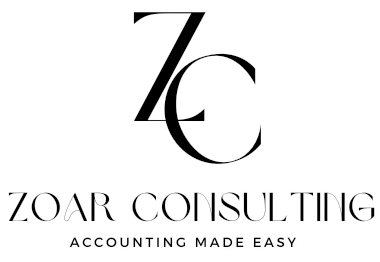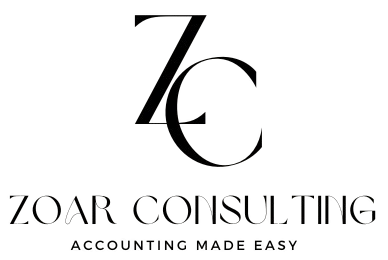In the world of finance, effective bookkeeping and managing supporting documents is the bedrock of accurate financial reporting, compliance, and efficient business operations. For any business, large or small, the accuracy and organization of financial records directly influence decision-making, planning, and auditing. Let’s dive into the essentials of effective bookkeeping and how to manage supporting documents to ensure financial clarity and control.
- Understand the Importance of Bookkeeping
Bookkeeping, the systematic recording of financial transactions, is critical for understanding a business’s financial health. From tracking revenue to monitoring expenses, bookkeeping supports a solid financial foundation that enables growth and resilience. Effective bookkeeping:
- Provides accurate data for decision-making.
- Ensures compliance with regulatory requirements.
- Enables smooth auditing processes.
- Helps in identifying and mitigating risks early.
By diligently maintaining financial records, businesses can avoid issues such as inaccurate financial statements, missed tax deductions, and potentially costly errors.
- Establish a Strong Bookkeeping System
Whether you’re using a manual or digital system, consistency and accuracy are key. Here’s a streamlined approach to setting up an effective bookkeeping system:
- Choose the Right Software: Today, numerous accounting tools, like QuickBooks, Xero, and Microsoft Dynamics 365, offer features for automated data entry, reconciliation, and document storage. These tools can streamline bookkeeping, reduce errors, and enhance document organization.
- Categorize Transactions: Proper categorization of transactions ensures clear insights into revenue streams, cost centers, and spending patterns. Categories like income, expenses, liabilities, assets, and equity will provide a structured framework for financial analysis.
- Regular Reconciliation: Reconcile bank accounts, credit card statements, and ledgers regularly to ensure transactions match. Regular reconciliations prevent discrepancies and make audits and financial reporting smoother.
- Implement Consistent Closing Procedures: Monthly closing routines enhance data accuracy and ensure reports are prepared on time. During closing, review all entries, update ledgers, and resolve outstanding transactions.
- Manage Supporting Documents Efficiently
Supporting documents—receipts, invoices, contracts, bank statements—validate transactions and ensure compliance with regulatory standards. Effective document management not only supports accurate bookkeeping but also prepares businesses for potential audits.
- Organize and Classify Documents: Arrange documents based on categories (e.g., income, expenses, assets, liabilities). Use a naming convention for easy retrieval, especially if the documents are digital. For instance, “2024-04_Expense_Laptop_Receipt” could help quickly identify and retrieve a document.
- . Digitize Physical Documents: Physical documents are susceptible to damage, loss, or misfiling. Scanning and storing them in a secure digital repository enhances accessibility and protects them from loss. Cloud storage solutions, like Google Drive, Dropbox, or dedicated accounting software with built-in document storage, offer a secure, accessible solution for document management.
- Establish a Document Retention Policy: Regulatory requirements often dictate how long businesses need to retain certain types of documents. For instance, tax regulations guidelines generally recommend retaining financial records for at least seven years. Create a document retention policy that aligns with compliance needs, and periodically review it to ensure relevance.
- Use Document Management Software (DMS): DMS solutions can integrate with accounting systems, automating the document organization process. With tools like OCR (Optical Character Recognition), they can scan documents, tag them, and store them for easy retrieval.
- Implement Robust Internal Controls
Effective bookkeeping goes hand-in-hand with strong internal controls to minimize fraud, errors, and regulatory issues. Here’s how to build a framework that ensures accountability:
- Segregation of Duties: Assign different people to different financial tasks, such as creating invoices, approving payments, and reconciling accounts. This minimizes the risk of errors and fraud.
- Approval Workflow: Implement approval processes for transactions exceeding a certain threshold. Requiring supervisory approval for significant expenses adds a layer of accountability.
- Audit Trail Maintenance: Record every transaction in a way that it leaves a trail. Documenting who performed each action and any relevant notes can simplify error resolution and prepare for audits.
- Periodic Audits: Schedule periodic audits, either internally or through third parties, to assess the accuracy of your records and adherence to your policies.
- Embrace Automation for Efficiency
Automated tools can streamline repetitive tasks, enhance accuracy, and reduce the time spent on data entry, reconciliations, and document filing. Consider the following automation approaches:
- Automatic Bank Feeds: Many bookkeeping software options offer bank integration, which enables automatic transaction imports. This feature simplifies reconciliation and ensures real-time access to financial data.
- Invoice Automation: Automate recurring invoices, vendor payments, and payroll processes. With the right accounting software, these transactions can be set to run automatically, reducing manual work.
- Integration with Other Business Systems: Integrate accounting software with payroll, inventory, or customer relationship management (CRM) systems to reduce data entry redundancy and improve data consistency.
- Review and Analyze Financial Data Regularly
The benefits of effective bookkeeping are maximized when you periodically review your financial data. Use financial reports to assess profitability, cash flow, and budgeting. Regular analysis supports informed decision-making and reveals patterns that may need attention, such as overspending in certain areas or unexpected revenue fluctuations.
- Train Your Team on Best Practices
Finally, make sure you’re aware of the tax deadline: April 30th. For those self-employed, the deadline to
file is June 15th, but any taxes owed are still due by April 30th. Filing on time prevents late fees and
interest charges, which can add up quickly if there are unpaid taxes.
- Plan for Disaster Recovery and Data Security
Data security is essential for protecting financial and sensitive information. Implement the following practices:
- Regular Backups: Schedule automatic backups of all digital records to avoid data loss due to system failures or cyber threats.
- Secure Access: Restrict access to sensitive financial data to authorized personnel only, and enforce strong password policies.
- Compliance with Data Protection Regulations: If your business handles sensitive customer information, ensure compliance with regulations like GDPR or CCPA. Many bookkeeping tools offer built-in compliance features to protect data and manage user permissions effectively.
Conclusion:
Effective bookkeeping and document management create a structured financial environment that supports business growth, ensures compliance, and enhances data accessibility. By organizing transactions, embracing automation, maintaining security, and keeping a pulse on financial data, businesses can cultivate a reliable financial foundation. With these practices in place, you’ll be well-equipped to make sound financial decisions and drive your business forward with confidence.


